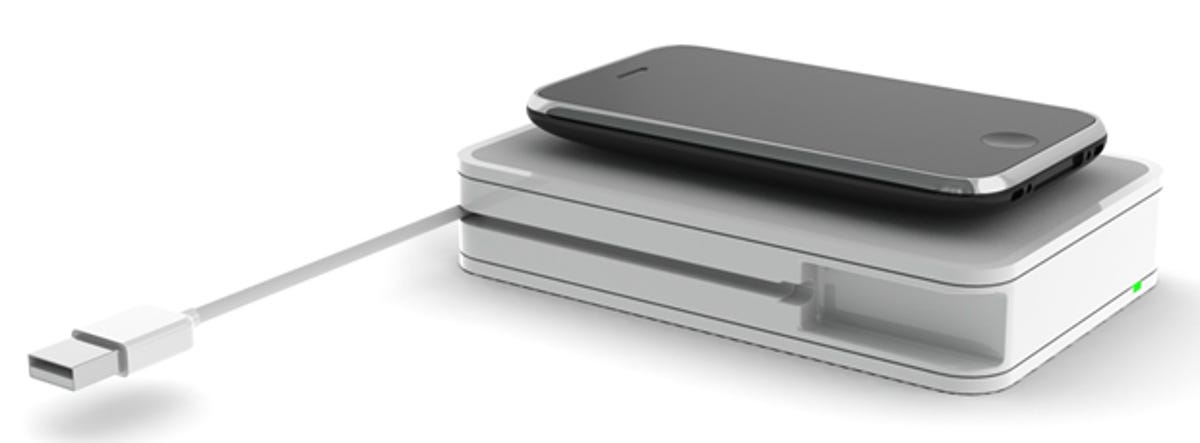
Ubiquisys
A new portable device will soon be able to help people make cell phone calls in other countries without relying on local 3G networks.
That bit of technical magic comes courtesy of a new device called an attocell, or a personal femotcell. Created by U.K.-based femtocell company Ubiquisys, the device is a small base station that can provide broadband Internet access to an iPhone, BlackBerry, Android phone, and virtually any other 3G mobile phone. But since it’s smaller than a traditional femtocell, the attocell is designed to be portable.
The attocell from Ubiquisys connects to a laptop through a USB port, providing both the juice and the Internet access, according to Ubiquisys. From there, the device figures out which country it’s in so it can determine the allowable 3G power consumption, which then dictates the range of the attocell to the phone. Depending on the country, the 3G range of the device could be as small as a fraction of an inch or as large as an entire room.
If the range is small, the user can place the phone on top of the device and make calls via a headset or speaker. Otherwise, the caller is free to roam around the room.
Through the attocell, the phone can bypass local cellular networks and hop onto the Internet to make and receive calls, thus allowing for calls both locally and abroad where reliable 3G connections aren’t available.
To learn more about the attocell, I spoke with Keith Day, the vice president of marketing for Ubiquisys. Day explained the benefits of the device, especially for travelers.
“If you’re a U.S. citizen and you’re doing a phone call from a hotel in Rome, for example, the call will be indistinguishable from a call in the U.S,” he said.
Beyond bypassing local 3G networks, the device could also potentially mean no more roaming charges. Though the technology makes that a possibility, Day said that the decision on roaming charges and other costs will be up to the carriers that offer the product. But he did acknowledge that when he himself travels, he’ll use a VoIP service such as Skype to make calls rather than rely on mobile calls with expensive roaming charges.
Ubiquisys considers the attocell a working product and is talking to different mobile carriers interested in selling it. The price of the attocell will be up to the carriers, but Day confirmed that it costs no more to manufacture than low-cost residential femtocells. Prices for traditional residential femtocells dropped below $100 last year, according to Ubiquisys.
Other tech companies have been jumping onto the femtocell bandwagon, often as a way to reduce the strain on their overtired cell networks. Last year, AT&T rolled out its 3G MicroCell “signal booster” as one solution for subscribers disgruntled over poor cellular coverage. Sprint and Verizon Wireless also offer their own femtocell devices.
Ubiquisys plans to demo the new attocell at next month’s Mobile World Congress in Barcelona .



